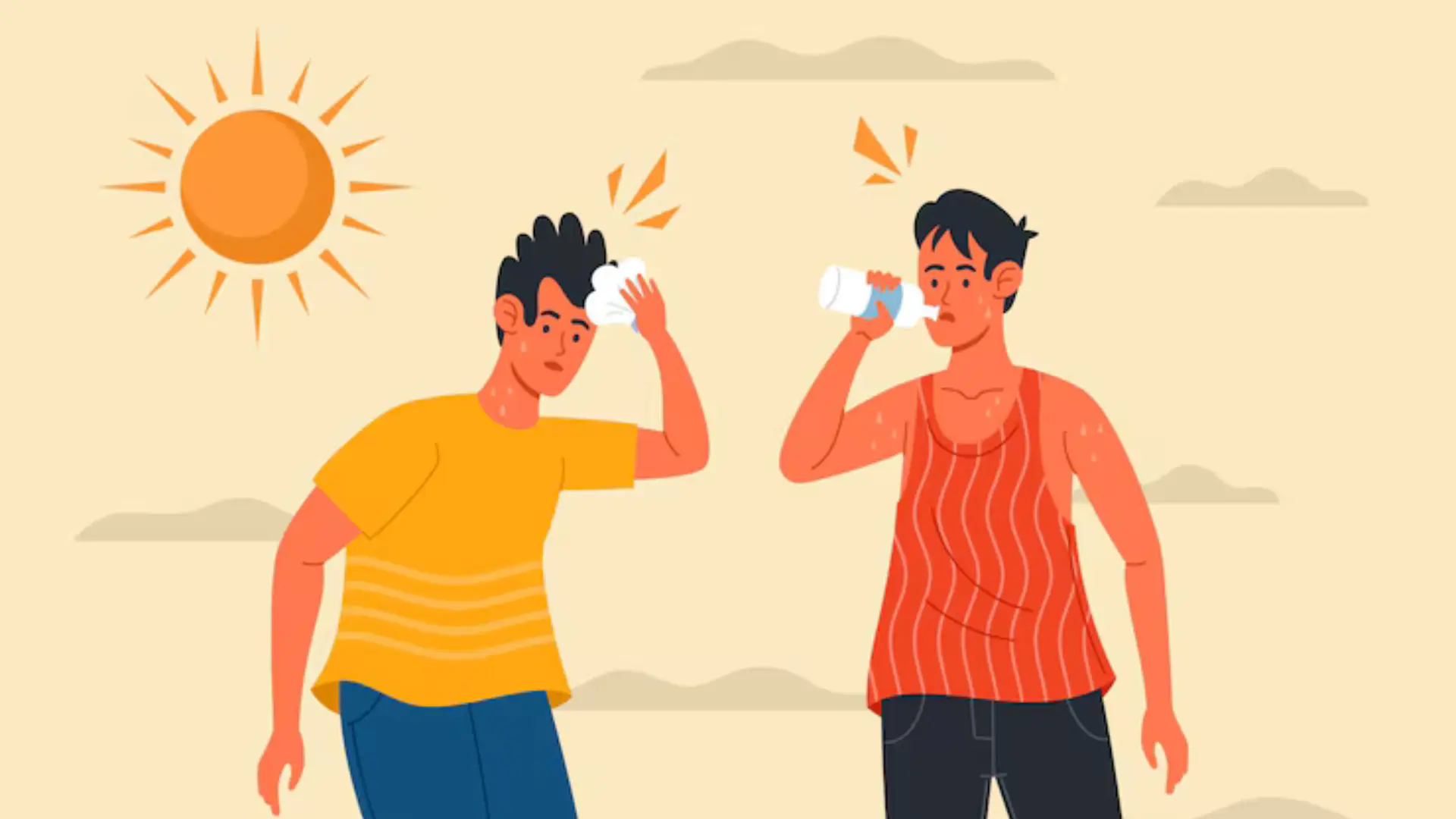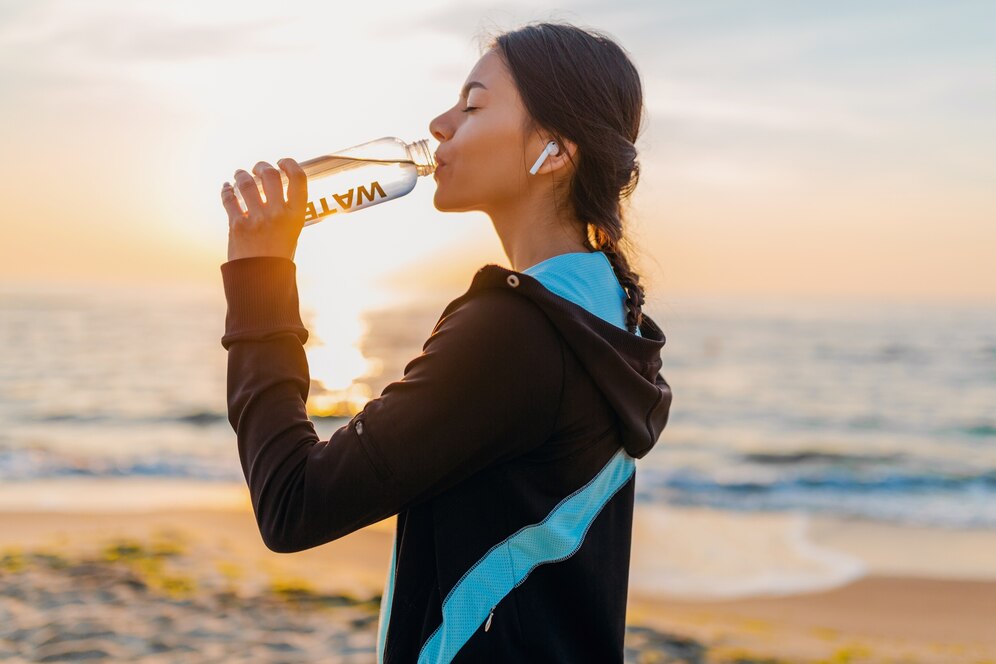Keeping your body hydrated is more than just a daily healthy tip; it’s your body’s lifeline. Whether you are sweating under the summer sun, feeling under the weather, or recovering after exercise, the human body constantly loses electrolytes.
But how do you know if you’re truly dehydrated? And what’s the fastest way to hydrate? In this piece, we will cover it all, from recognizing the symptoms of dehydration, whether it is mild or severe, to tips to keep your body hydrated and balanced using methods like IV Hydration Therapy or balancing fluid intake. Let’s dive in!
How to Know You’re Dehydrated?
The majority of the human body is made up of water. When you lose more fluids than you take in, you risk falling into a dehydrated condition. Symptoms of dehydration don’t always announce themselves with a dry mouth; it can sneak up subtly and dangerously through excess sweating, urinating, vomiting, or diarrhea. Here’s how your body lets you know when you’re dehydrated.
Mild to Moderate Symptoms:
- Dry mouth or throat
- Headache
- Fatigue or low energy
- Dark yellow urine
- Muscle cramps
- Dry skin
- Constipation
- Feeling overheated
Severe Symptoms of Dehydration:

- Rapid heartbeat
- Weak pulse
- Dizziness
- Fainting
- Dark urine or no urine for 8+ hours
- Sunken eyes
- Low blood pressure
- Chills or cold extremities
If you’re experiencing more than one of these symptoms, consider seeking medical advice either from your primary care physician or a nearby urgent care center, as dehydration can become life-threatening without timely attention.
Why Fast Hydration Matters?
Dehydration can affect almost every function of the body. From your mood to energy levels, it regulates it all.
- Concentration issues.
- The heart works harder to circulate blood.
- Muscles cramp and fatigue faster.
- Kidneys strain to process waste.
- Low energy levels.
- Low-grade mood.
Fast hydration isn’t just about feeling water in your body – it’s about restoring function and low energy levels.
How Long Does it Take to Rehydrate the Body?
The time it takes to rehydrate depends on the severity of the dehydration, the individual’s health status, the rehydration methods, and any underlying causes (illness, exercise, alcohol, sun exposure).
- Mild Dehydration: Can be resolved in 1-2 hours with proper fluid and electrolyte intake.
- Moderate Dehydration: May take up to 6 hours to rehydrate fully, especially if there’s ongoing fluid loss (vomiting & diarrhea).
- Severe Dehydration: This can take 24 hours or more without medical intervention. In this case, IV fluids for dehydration are the fastest way to hydrate the body.
How to Hydrate Fast: Top 6 Ways
From everyday remedies to clinical solutions, let’s explore how to hydrate fast via these 6 top approaches.
1. Eat High-Water Content Foods
Solid foods can be surprisingly hydrating. Some fruits and veggies are over 90% water, and they also provide essential vitamins, fiber, and electrolytes. The top foods for dehydration include:
- Watermelon – 92% water and rich in lycopene
- Cucumbers – cooling, crisp, and ultra-hydrating
- Strawberries and oranges – packed with vitamin C
- Lettuce and spinach – light and water-rich greens
- Tomatoes, celery, and zucchini – hydrating and low in calories
Adding these to meals or snacks can improve hydration and support your body’s fluid balance.
2. Use Electrolyte-Rich Drinks
Electrolyte drinks help your body retain fluids better. Athletes often use them, as it helps them to stay hydrated and also benefits during their sports physicals, but they also come in handy during sickness, travel, or in very hot weather. Top choices include:
- Sports drinks with low sugar content (containing sodium and potassium)
- Coconut water (natural and rich in potassium)
- Electrolyte powders or tablets mixed with water
- Pediatric hydration drinks like Pedialyte
3. Oral Rehydration Solution (ORS)
Developed by the World Health Organization, oral rehydration solutions are a lifesaving treatment used worldwide for dehydration caused by diarrhea, vomiting, or cholera. ORS is a quick, safe hydration option for those at home, especially for children and the elderly. ORS contains:
- Precise amounts of sodium, potassium, and glucose
- Promotes rapid absorption of water in the small intestine
- Available over the counter or in sachets.
4. Limit Caffeine and Alcohol
Both caffeine and alcohol are diuretics. They are responsible for increasing urine output and dehydrating the body faster. If you are already dehydrated, consuming coffee, tea, soda, or alcohol can make things worse. To keep your body hydrated, for every caffeinated or alcoholic drink you consume, follow it with a full glass of water to balance fluid loss.
5. Seek Medical Advice
Dehydration can escalate quickly, especially in infants, seniors, and people with chronic illnesses. It’s advised to seek instant medical attention if you experience:
- Rapid heartbeat
- Dizziness
- Dry mouth
- Weak pulse
- Sunken eyes
- No urine for 8+ hours
- Fainting
6. IV Fluids
IV hydration therapy is the fastest, most efficient way to rehydrate your body. It’s the best option for those looking for a near-instant solution. The reasons they work so well are:
- Fluids go directly into your bloodstream – no digestion is required.
- Can be customized with glucose, electrolytes, vitamins, or medications.
- Ideal for severe dehydration, post-surgery recovery, or severe food poisoning.
- Often used in hospitals, urgent care centers, and at-home IV therapy services.
Conclusion
Staying hydrated isn’t just about downing eight glasses a day – it’s about tuning in to your body and giving it a hand when it needs one. Spotting the signs of dehydration, steering clear of common slip-ups, and using specific tactics like sports drinks, oral rehydration solutions, and IV drips for dehydration can shield your health and keep your energy up.
Whether you are sweating it out at the gym or experiencing any other dehydration symptoms, the above-shared tips on hydration can be a lifesaver to turn things around.
FAQs
-
What is the fastest way to hydrate?
IV fluids offer the quickest solution in cases of extreme dehydration. To address mild to moderate cases, oral rehydration solutions or electrolyte drinks prove effective.
-
Is drinking water enough to hydrate quickly?
Not always. If you’ve lost electrolytes through sweat, illness, or heat, you need electrolyte support in addition to water.
-
How long does it take to rehydrate after being dehydrated?
The time frame varies. You can reverse mild dehydration within one to two hours. Severe dehydration might take 12 to 24 hours or longer to resolve without medical intervention.

